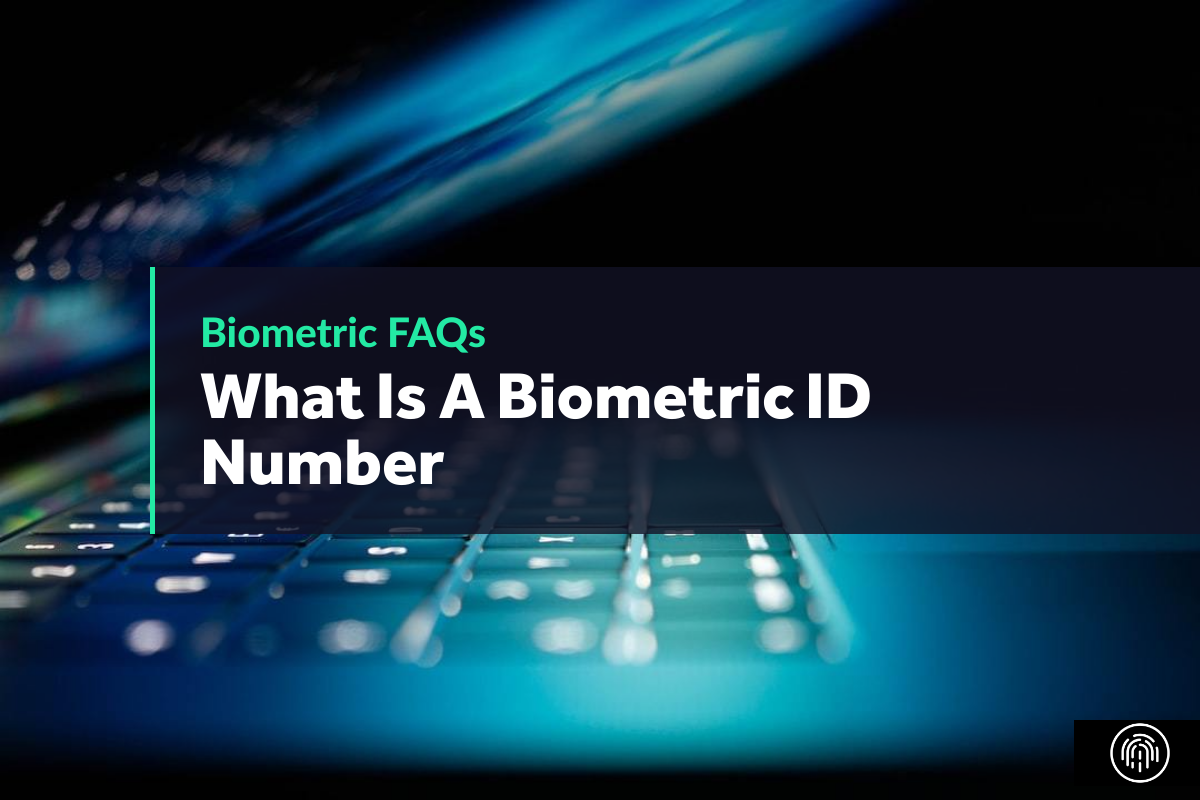In this article, we’re going to be discussing what exactly a biometric ID is, and how this differs slightly from a biometric ID card.
So without further ado, let’s get into it!
What Is A Biometric ID
A biometric identifier is a physical or behavioral characteristic that can be used to uniquely identify an individual. Common examples of biometric identifiers include fingerprints, iris patterns, and DNA.
Biometric identifiers are often used in security systems to verify the identity of individuals before granting them access to sensitive information or physical resources.
What Is A Biometric ID Number
A biometric ID number is a unique identifier that is assigned to an individual based on their physical or behavioral characteristics. This number can be used to track and manage an individual’s personal information, such as their medical history or financial records. Biometric ID numbers are typically assigned at birth, but they can also be assigned later in life if an individual changes their appearance or develops new physical or behavioral characteristics.
What Is A Biometric ID Card
A biometric ID card is a physical identity document that uses biometrics to authenticate the identity of the cardholder. The most common type of biometric ID card is the passport, which uses facial recognition to verify the identity of the holder. Other types of biometric ID cards include fingerprint scanners, iris scanners, and hand geometry readers.
What Can Biometric ID Cards Do?
Biometric ID cards are a form of identification that can include fingerprints, iris scanning, and/or other biometrics. They are used to verify the identity of an individual. Biometric ID cards can be used for a variety of purposes, such as national ID cards, employee ID cards, or security passes.
Importance of Biometric ID Card
Biometric identification (ID) systems are becoming increasingly important in today’s world. A biometric ID card is an identification card that uses biometric data to authenticate the identity of the cardholder. Biometric data is unique to each individual and can be used to authenticate the identity of a person with a high degree of accuracy. Biometric ID cards are used in a variety of applications, including security, access control, time and attendance tracking, and law enforcement.
The use of biometric ID systems is growing rapidly due to the many advantages they offer over traditional ID systems. Biometric ID systems are more secure than traditional ID systems because they are much more difficult to forge. In addition, biometric ID systems are more convenient than traditional ID systems because they allow individuals to be quickly and easily identified.
The importance of biometric ID systems will continue to grow in the future as more and more organizations adopt them. Biometric ID systems offer a number of benefits that make them an attractive option for a wide range of applications.
How Much of the World is Leaning Towards Biometric ID Cards
It is estimated that over two billion people worldwide are using some form of biometric identification, whether it is a fingerprint, iris scan, or face recognition. This number is only expected to grow as more and more countries move towards implementing biometric ID cards. A biometric ID card is an identification card that uses biometrics (physical or behavioral characteristics that can uniquely identify an individual) to authenticate a person’s identity. Biometric ID cards are seen as a more secure alternative to traditional ID cards, as they are much harder to forge. Additionally, biometric systems are often used in conjunction with other security measures, such as PIN numbers or access codes, to further increase security.
What Countries Use Biometric ID Cards?
There are many countries around the world that have implemented biometric ID cards. These cards contain personal information such as your name, date of birth, and your fingerprints. The fingerprints are used to verify your identity when you use the card.
Some countries that use biometric ID cards are Australia, Canada, the United States, and the United Kingdom. In these countries, the cards are used for a variety of purposes such as accessing government services, proving your identity when applying for a job, or entering the country.
The use of biometric ID cards is becoming more common as technology improves. This type of card is more secure than a traditional ID card because it is much harder to forge. Biometric ID cards are an important tool in keeping people safe and ensuring that only the people who are supposed to have access to certain areas or information are able to get it.

